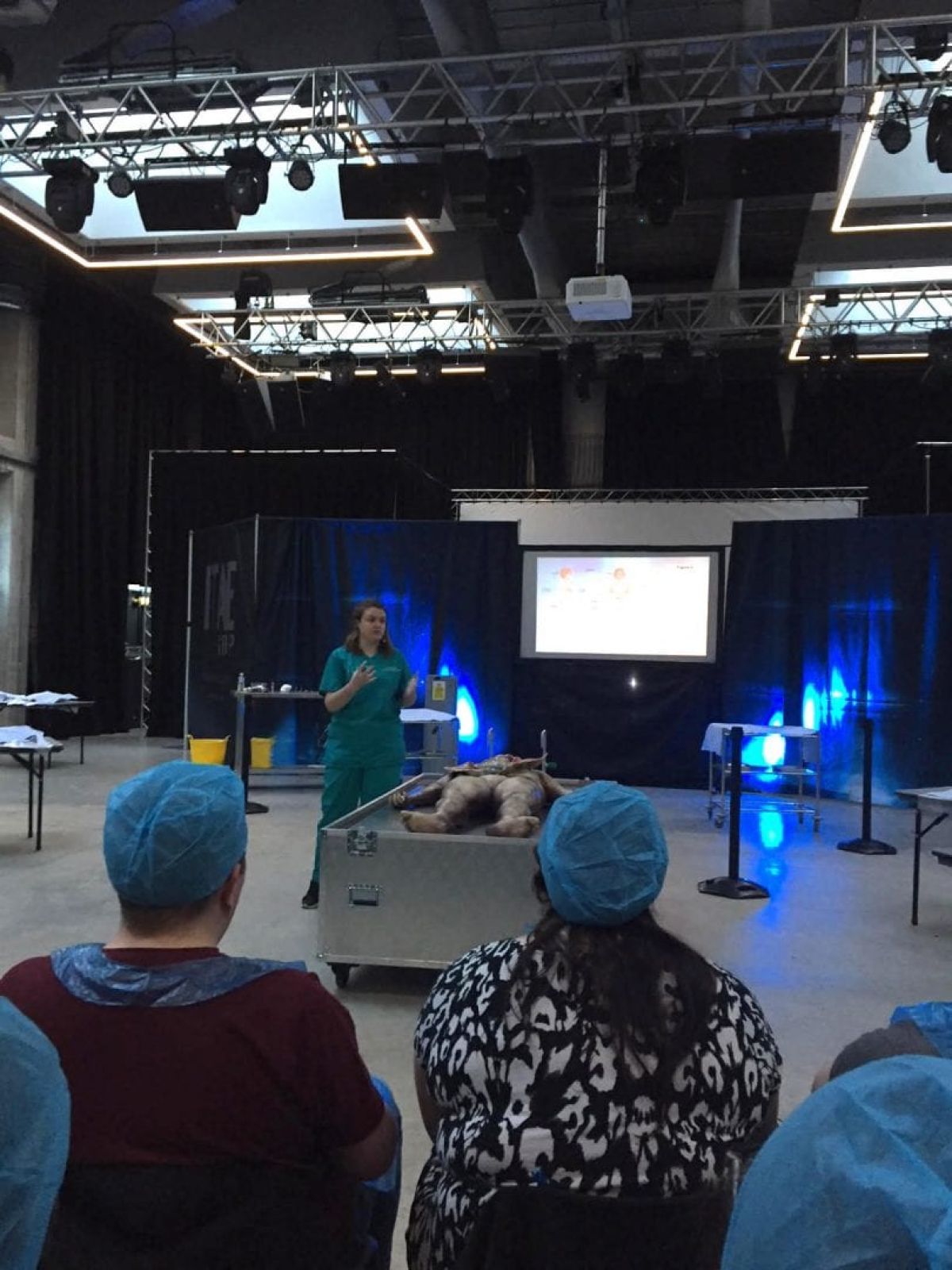A live dissection experience: VIVIT
By Grace Revill

“Real-life organs look nothing like they do in the textbooks”. This was a comment from a nursing student holding a heart in her hands at last week’s VIVIT experience at Manchester Metropolitan University.
The VIVIT Experience is an academically contextualised dissection, aimed at students and practitioners to help improve their understanding of anatomy, physiology, and pathology.
As we entered the mobile anatomy lab on Saturday morning, we were confronted with the world’s only bespoke semi-synthetic cadaver. The external body is made of silicone, designed and built by Samuel Piri and the Inspire to Aspire Events Limited (ITAE group) who own The VIVIT Experience. The organs are of swine origin, making the finished product looked eerily realistic.
The event started with a run-through of anatomical terminology and then progressed to 20-minute lectures explaining the anatomy and physiology of the skull and brain, the nasal cavity, the eye, the spine, the ribs and diaphragm, the lungs, the heart, and the gastrointestinal tract.
The information presented by the demonstrator was elaborate and yet also easy to understand. As each region was linked to respective pathological conditions and symptoms, it was very clinically relevant and engaging. The learning was also supported by using human cadaveric images and demonstration videos.
The lectures were separated by five dissections throughout the day which gave the participants an opportunity to put what they had just learned about to practice. These dissections used pig organs from abattoirs, making use of waste products that would otherwise be thrown away.
Pig organs share a close anatomical relationship to human organs, making them perfect for clinically relevant dissections. It was great to see everyone engaging in the educational the experience as well as having fun.
VIVIT travels across the country to deliver workshops in schools, colleges, hospitals, and universities. It’s a great opportunity for healthcare students as not many establishments have access to cadaveric tissues. For many, VIVIT might be their only chance to see real organs before starting placements. It is also fantastic for any science students trying to grasp the concepts of anatomy.
VIVIT offers lots of different talks, making sure there is something for everyone. Whether you’re a GCSE or A-level student looking to learn the basics, or a qualified health practitioner looking to refresh and advance their knowledge, there is something available for everyone.
Alice Gwyn-Jones, a 5th year medical student and clinical lead for VIVIT last week, said; “we think it’s so important to get hands on dissections as well as learning about them in textbooks. We get a lot of students coming up afterwards and its clicked for them as they’ve actually managed to see the organs in real life and it’s been explained in a more clinical context so that they’ve been able to link it to things they’ve seen in practice.”
The experience is even in the process of becoming an internationally-recognised enterprise. Earlier this year, Samuel Piri appeared on BBC’s Dragon’s Den and was snapped up by Deborah Meaden and Peter Jones who gave him £90,000 to help bring the non-conventional business venture to other countries.
It’s so important that we continue to expand opportunities like this. By engaging and captivating audiences, we can help to inspire young people to pursue scientific and medical interests, and encourage those who already do. This event is perfect for anyone wanting to learn more about anatomy and physiology and gain dissection experience. Just make sure you’re not squeamish!







